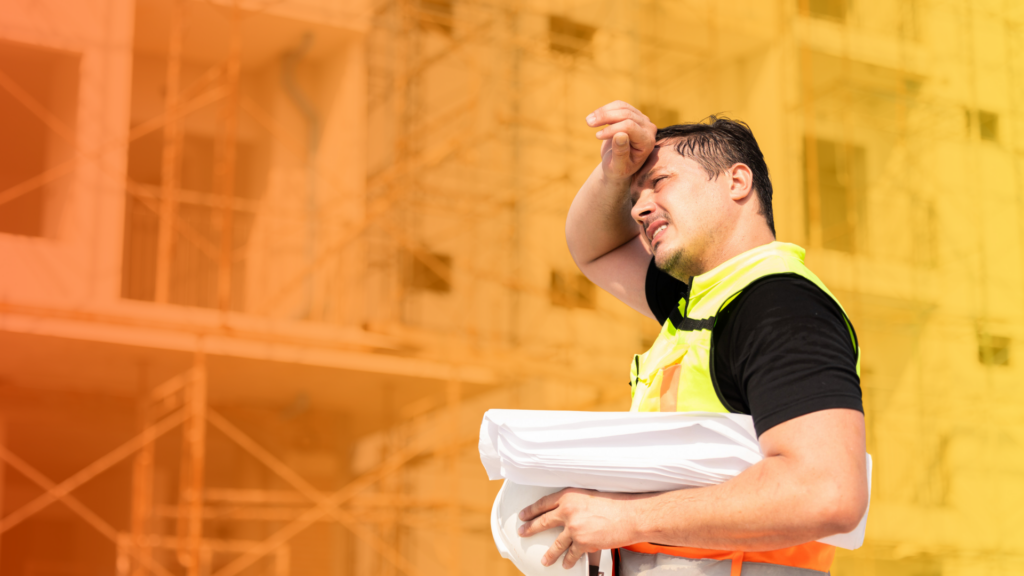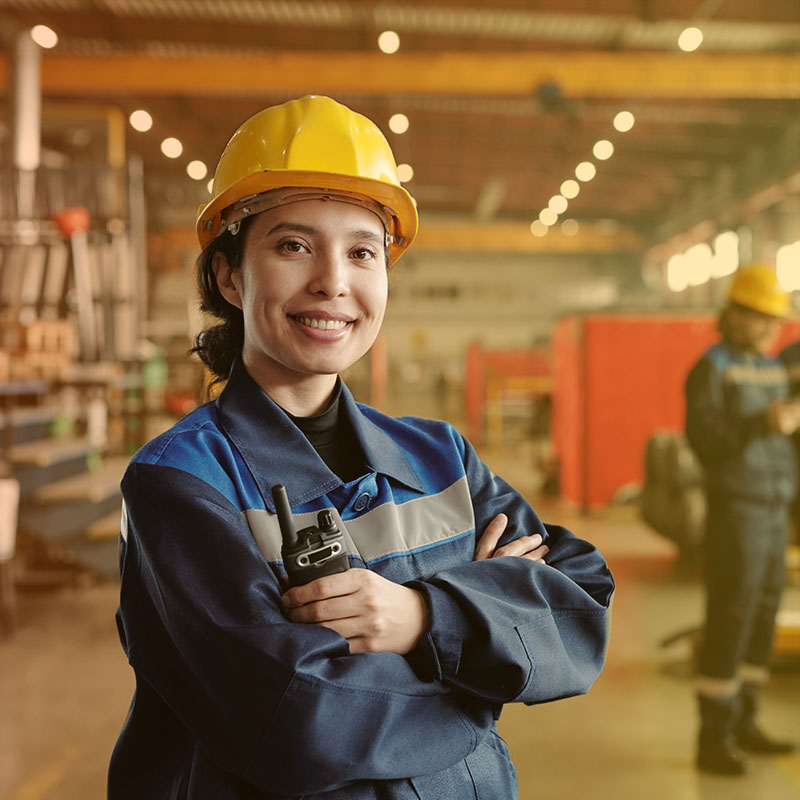
All workplaces have potential hazards, and employers have a responsibility to keep their employees safe. In the construction industry, risks are more pronounced, however, two of the biggest hazards that exist are mental health issues and silica dust exposure. SafeWork NSW has been conducting visits to construction sites since January 2022 to provide vital information on how these risks can be managed.
In this article, I discuss the risks and hazards facing construction workers, and why employers must meet all their legal obligations when it comes to safety in the workplace.
So, what are the risks?
The risks of silica dust exposure are significant: between 2020 and 2021, 57 cases of silicosis were diagnosed, and seven deaths were recorded in NSW.[1] Individuals exposed to silica dust have a risk of developing silicosis, lung cancer, and other illnesses. For this reason, NSW has prohibitions around the uncontrolled cutting of products containing crystalline silica, as well as requiring those nearby to wear appropriate PPE, and ensuring extraction systems are in place. Inspectors can issue stop work and compliance notices in cases where precautions haven’t been taken. Additionally, employers should remember that Work Health and Safety (WHS) legislation contains requirements around signage that must be displayed on construction sites, as well as requirements to monitor workers’ health where significant exposure risk is present.
Physical and psychological safety: they’re just as important as each other
Across all industries, the mental health of workers is always a serious concern, especially with the pandemic adding new stresses and pressures. An employer’s fundamental responsibility under WHS law is the obligation that they must provide a safe and healthy workplace, and this applies equally to ensuring their employee’s psychological safety or mental health, in the same way, it does to physical health.
In the construction industry, workers are six times more likely to die from suicide than from an accident: this is an alarming statistic.[2] While it can be linked to out-of-work causes, experiencing bullying and harassment at work, witnessing traumatic incidents, and other situations can contribute to poor mental health as well.
Across all industries, the mental health of workers is always a serious concern, especially with the pandemic adding new stresses and pressures. In all this, an employer’s fundamental responsibility under WHS law hasn’t changed – their duty of care is to provide a safe and healthy workplace.
Regrettably, mental health is still a stigmatised subject in blue-collar industries such as construction, and although there is much more conversation about it than before, many employers may feel that they aren’t adequately equipped to address or talk to their staff about mental health risks. It’s important to remember that although you don’t need to be an expert to talk about mental health, employers are responsible for ensuring the work environment is safe, and that risks are identified, consulted on, and controlled. Addressing factors such as bullying and harassment through clear codes of conduct and appropriate disciplinary procedures, as well as offering employees access to Employment Assistance Program (EAPs) services, are something employers can consider.
Providing a safe working environment is your responsibility as an employer. You must make yourself aware of the specific risks in the workplace and put in place the appropriate systems to manage and address them. Silica exposure and poor mental health have been highlighted as two of the most prevalent risks in the construction sector: it’s essential that employers recognise these risks, ensure they’re compliant and seek help when unsure of their obligations.
[1] https://news.safework.nsw.gov.au/pub/pubType/EO/pubID/zzzz6202ff2c71e94963/?aid=102e9a2cb42908df&fe9a2cb42908df
[2] https://www.safework.nsw.gov.au/__data/assets/pdf_file/0020/1037342/mental-health-in-construction-fact-sheet.pdf
About our author
Zaynab Aly is a Senior Workplace Relations Consultant at Citation HR. She has a particular interest in the retail industry and regularly provides advice on workplace matters to find solutions for clients.









